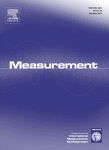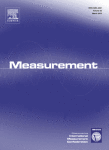The chief executive of a university in Eastern India whose research is full of tortured phrases – possible signs of plagiarism – had two papers pulled in December after investigations found evidence of “compromised” peer review and other red flags in the publications.
A third article by the executive, Amiya Kumar Rath, has also come under scrutiny, a publisher told us.
Rath became vice chancellor of Biju Patnaik University of Technology in Rourkela in 2023. A computer scientist with more than 100 publications, he is listed as the second author of one of the now-withdrawn works, a 2020 review article on inspecting and grading fruits using machine learning.
Continue reading University vice chancellor’s work crawling with ‘tortured phrases’

 More than two thousand researchers have
More than two thousand researchers have 
 More than 20 faculty members at Johns Hopkins University have signed a letter to Scientific Reports saying they will resign from the editorial board if the journal doesn’t retract
More than 20 faculty members at Johns Hopkins University have signed a letter to Scientific Reports saying they will resign from the editorial board if the journal doesn’t retract 

 The authors of a popular — and heavily debated — F1000Research paper proposing a method to prevent scientific misconduct have decided to retract it.
The authors of a popular — and heavily debated — F1000Research paper proposing a method to prevent scientific misconduct have decided to retract it.
 A computer scientist in Malaysia has lost two papers for faked peer reviews, and another for duplication. A fourth paper on which he is a co-author appears to have simply disappeared.
A computer scientist in Malaysia has lost two papers for faked peer reviews, and another for duplication. A fourth paper on which he is a co-author appears to have simply disappeared.